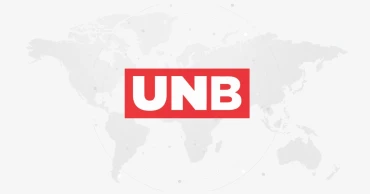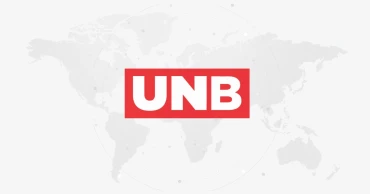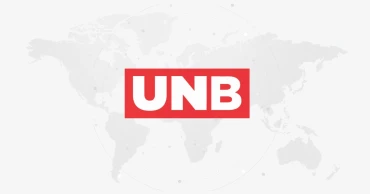RTGS
This is how RTGS funds transfer works
One of the prime functions of the banking system is to circulate money in the economy and settle payments. These payments can range between clients, foreign settlements, or between banks. Often the high-value, low-volume nature of payments requires higher security and instant process which are typically unavailable with traditional payment methods like NEFT, NPSB, or BACH. And that is where RTGS comes in. Let’s look at what RTGS is and how it works in the Bangladeshi banking system.
What is RTGS?
The term RTGS stands for "Real-Time Gross Settlement". It is a system devised for large-value interbank funds transfer operating in real-time. RTGS is different from the conventional funds transfer channel in the sense that it is instant and irrevocable.
Conventional transfer systems like BEFTN and NPSB use a batch clearance system that bundles several transactions and clears them at a time. These processes are time-consuming, often taking several hours to several days to settle a transaction.
Read More: Which are the Top 10 Strongest Currencies in the World in 2023?
While undertaking high-value transfers, there is always credit risk in the case of batch settlements. For example, a fund transfer failure in the case of BEFTN or NPSB may result in the payable sum being halted for up to 45 days in the gateway. In the case of large-value transactions, such risks may have serious financial consequences.
Why is RTGS better than other funds transfer methods?
There are several reasons why RTGS is a better funds transfer method, even if there are some caveats to it.
Speed
RTGS transfers are settled in real-time and in gross amounts. Well, what does this actually mean? In essence, unlike every batch transaction that happens between banks, RTGS is regulated by the central bank.
The central bank debits funds from Bank A and credits it in Bank B. This happens instantly without the need for the actual movement of money from Bank A to Bank B.
Read More: How to Build a Successful Company?
Security
RTGS transactions use Swift routing through the central bank. The central bank acts as the intermediary and uses a closed channel for transaction settlement. Moreover, the gross settlement amount ensures that there is no chance of transaction failure whatsoever.
High-value transfers
RTGS specializes in high-value and low-volume transactions. It is most commonly used for gross business transactions, government payments, and security settlements. However, being a high-value transfer means there is a very steep minimum transfer amount for each RTGS settlement.
Finality
Even though the central bank acts as the intermediary, the transactions completed through RTGS are final and irrevocable. Once the transaction is completed, it is impossible to reverse the transaction in any way by any party. This provides security against fraud or wire-tagging in transactions.
Read More: Silent Partner vs Investor in Business: Know the Difference, Pros and Cons
How does the RTGS system work?
The RTGS payment system works much like most other transaction systems with a few exceptions. It starts with:
Initial Request
The RTGS payment procedure starts with the sender requesting a transfer of the amount to a certain beneficiary account. The sender is required to input the amount to be transferred and beneficiary account details.
Verification Process
The sender’s bank will then cross-check two things – whether the sender’s account can cover the amount to be sent and also verify the beneficiary’s banking details.
Read More: How to Identify Fake Currency Notes in Bangladesh
Transfer to RTGS
The transaction details are then sent from the sender’s bank to the RTGS system. This closed channel system is controlled by the central bank. Here, the central bank debits the amount from the sender and credits it to the beneficiary’s account.
Settlement
The settlement occurring in the RTGS system is gross. Meaning each individual transfer request is fulfilled individually by the central bank and the associated scheduled banks. This completely removes the credit risk.
Confirmation
The RTGS system confirms the sender and the beneficiary of the transaction and shows the debit and credit information in real-time.
Read More: How to safely send remittance to Bangladesh?
Limitations of the RTGS System
The RTGs system was first introduced in 1985 with just three central banks. Today, over 100 countries and their central banks across the globe use the RTGS system. Even though RTGS is a popular transaction method, it comes with its limitations.
The first limitation is the high minimum transaction limit. In the case of RTGS in Bangladesh, the minimum limit is 1 Lac BDT with a maximum of 5 Lac BDT per transfer. The upper limit is only for personal RTGS transfers. In the case of government payment or interbank foreign currency transfer, there is no upper limit.
There is another issue regarding the liquidity crunch. Every scheduled bank can keep 10% of their scheduled deposit as liquid assets with the Bangladesh Bank treasury and circulate the rest as loans. In the case of high-value high-volume transactions, banks with lower liquidity may not be able to follow through with the debit process.
Read More: Explainer: What it means to let taka float
Even though the sender may completely cover the debit, the liquidity crisis may force banks to default on the RTGS request, resulting in failed transactions. It also has a negative economic signal regarding the liquidity state of the bank.
RTGS in Bangladesh
RTGS was formally inaugurated in Bangladesh on 29 October, 2015. Since then, Bangladesh Bank has connected 60 scheduled banks along with 19 NBFIs into the RTGS system. As of September 2022, Bangladesh Bank has also introduced scheduled transfers for foreign currency interbank with no upper limit.
In 2022, the RTGS system settled 7,977,052 transactions amounting to 5,156,432 crore BDT. There were additional settlements of 5.17 million USD, 15,822,810 EUR, and 204,261 GBP.
Read More: Digital Currency: Benefits and Risks of the Cashless Economy in Bangladesh
A single sender account can request up to 5 RTGS transactions per day, taking the max RTGS limit to 25 lacs BDT per day.
For each transaction, most banks charge 100 BDT as a processing fee. Additional VAT will be included in the transfer amount as per government regulation.
Most RTGS transactions begin at 10 AM and close by 3 PM each banking day. RTGS cannot be utilized on holidays.
Read More: Can You Travel Abroad Without Buying US Dollars?
Final Words
The RTGS system has been a breakthrough in the fund transfer scenario of Bangladesh. While it's not exactly the system for regular day-to-day fund transactions, it provides a secure way for high-value low volume transactions. RTGS essentially brings an added layer of security to the transaction process, barring the credit risk threats and ensuring irreversible gross settlement instantaneously.
2 years ago
HSBC introduces domestic foreign currency transaction through RTGS
The Hongkong and Shanghai Banking Corporation (HSBC), along with Bangladesh Bank (BB), has initiated foreign currency (FCY) transaction solution through real-time gross settlement (RTGS) clearing of the central bank.
This solution will enable HSBC’s valued customers to make domestic foreign currency payments to other participating bank’s FCY accounts and to receive FCY payments from other participating bank’s FCY accounts, according to a media release issued today.
Additionally, under the trade umbrella, HSBC can now receive domestic export payments and execute domestic import payments besides receiving fund transfer via FCY RTGS from other bank margin accounts/ERQ account for import liability settlements.
Read BB lets dealers to open foreign currency deposit accounts
Earlier, domestic foreign currency settlement was executed through FCY demand draft (FDD), drawn on Bangladesh Bank, which required multiple days.
This previous process was time-consuming as the transaction details had to be checked and validated manually.
HSBC has been continuously introducing smooth and convenient digital services through its online platform, HSBCnet.
Through the establishment of domestic foreign currency settlement through RTGS, clients will be able to make their cash management payments online which remove their need to physically visit bank premises and handle paper-based instruments like FDD. As the FCY RTGS process is automated, the transaction will be faster, safer and more secured.
Read Cellfin launches Mastercard dual currency prepaid card
Payments will now be processed easily without any hassle and fund realisation for payee will be faster.
This will result in shorter processing time as transactions will be completed near real-time using RTGS instead of multiple days using FCY DD.
HSBC said it is determined to create opportunities for its clients to avail of smooth and convenient services.
Thus, with the introduction of new customised products like foreign currency transaction solutions via RTGS, HSBC is continuously making its customer journey easier.
Read Bangladesh Bank to flirt with digital currency en route to cashless society
3 years ago
Instant transaction of foreign currencies: Bangladesh Bank launches RTGS
Bangladesh Bank has started instant foreign currency transactions, from bank to bank, through online-based real time gross settlement (RTGS).
Banks are primarily clearing and settling in US dollars, pounds, euros, Canadian dollars, and Japanese yen.
Bangladesh Bank Governor Abdur Rouf Talukder officially inaugurated the RTGS program at the headquarters of the central bank in Motijheel today (September 4, 2022). Deputy governors Ahmed Jamal and Kazi Sayedur Rahman, President of FBCCI Md. Jasim Uddin, MCCI president Saiful Islam, Chairman of Association of Bankers, Bangladesh Selim RF Hossain, and senior officials of the central bank, among others, were present at the event.
Read: Banks instructed to campaign for bringing back laundered money
Earlier, these five currencies – US dollar, British pound, euro, Canadian dollar, and Japanese yen – were settled in the traditional transaction system. In this method, banks use paper documents, and the bank officials settle the transaction. It was time-consuming and costly, said Md Serajul Islam, executive director and spokesperson of Bangladesh Bank.
From today (Sunday), banks will be able to settle transactions instantly without any hassle through the RTGS system, he said.
The Chinese currency yuan can be traded against five foreign currencies.
Bangladesh Bank issued a notification on August 28 to start instant foreign currency transactions through RTGS.
3 years ago





